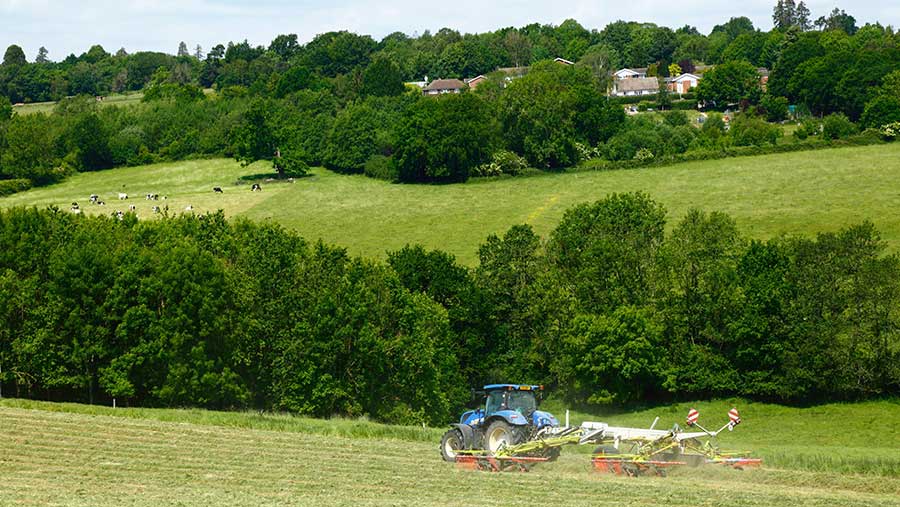How to reduce capital gains after loss of BPS entitlement
 © James Brunker UK/Alamy Stock Photo
© James Brunker UK/Alamy Stock Photo It is estimated that about half of English Basic Payment Scheme (BPS) claimants have bought, inherited or had entitlements gifted to them.
The value of the entitlements at the date of these transfers has now been lost, but this loss can be used to reduce the capital gains tax (CGT) bill on the sale of land and other assets for individuals, partnerships and companies.
This Q&A deals with considerations for individuals and partnerships. Companies can also make loss claims, but the rules and process for claiming are different.
See also: Common farm VAT mistakes and how to avoid them
What can the loss be used against?
This is a capital loss that can be claimed on the annual tax return as what is known as a negligible value claim.
The loss can then either be offset against capital gains made on other assets in that year or can sit on the tax account for use against capital gains in future years.
How is the loss calculated?
The loss is the cost of any entitlements purchased plus the value of any inherited or received by gift.
What is the time limit for claiming?
There is no deadline, but to offset a loss in a tax year, the claim needs to be made within two years of the end of that tax year.
While there is no limit for using the loss, it is best to claim as soon as possible so that the loss is not “wasted” or forgotten.
What is the saving?
Capital gains are taxed at 28% on residential properties and 20% on land and other property.
For example, a loss of £50,000 claimed against a £100,000 gain on the sale of a farm cottage will currently result in a tax saving of £14,000.
The actual saving will depend on the rates of CGT in place when the loss is offset.
Potential problem areas
Land purchased with entitlements several years ago, where the land and entitlement values were not split out
In most cases, the price of land should have been broken down to obtain a stamp duty land tax saving by allocating part of the price to BPS entitlements.
It is possible to retrospectively obtain a breakdown of the purchase and include the price of the BPS entitlements in the loss calculation.
Land and share in a partnership inherited on the death of a family member, but no valuation of entitlements was carried out at the time of inheritance
This is a common problem in that business assets usually qualify for 100% inheritance tax (IHT) relief.
This sometimes means that the book value or accounts value of partnership capital is used to save on the time and expense of obtaining a professional valuation for IHT purposes.
Where no formal valuation was obtained, then a split can be made between the land and entitlement value elements.
Sharing of losses between members of a family partnership
Losses should be allocated according to the partnership agreement.
If there is no agreement, or it does not specify how capital losses should be shared, then they should be shared in the same proportion as normal trading profits are split.
This is a complicated calculation, so needs specialist advice if future tax savings are to be obtained.
Andrew Robinson is partner and head of agriculture at accountant Armstrong Watson
Don’t miss out on possible tax savings
There is no downside to making a negligible value claim to reflect the loss of Basic Payment Scheme entitlement values, even where no future capital gain is anticipated.
Those with purchased, inherited or gifted entitlements should make sure they do not miss the opportunity to generate a capital gains tax loss now, by making a claim on the 2023-24 tax return.
Many farming businesses are under pressure and decisions may be taken in future that are not currently in mind.
So, failure to claim the loss of entitlement values could be a lost opportunity if unexpected future gains arise.
